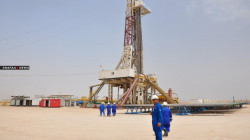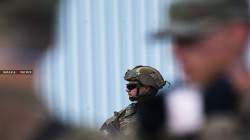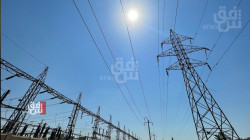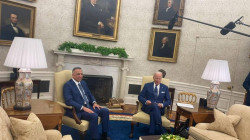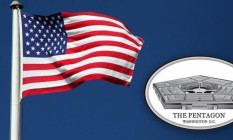Iraqi-US relationship future post-coalition withdrawal amid 'dangerous indicators'
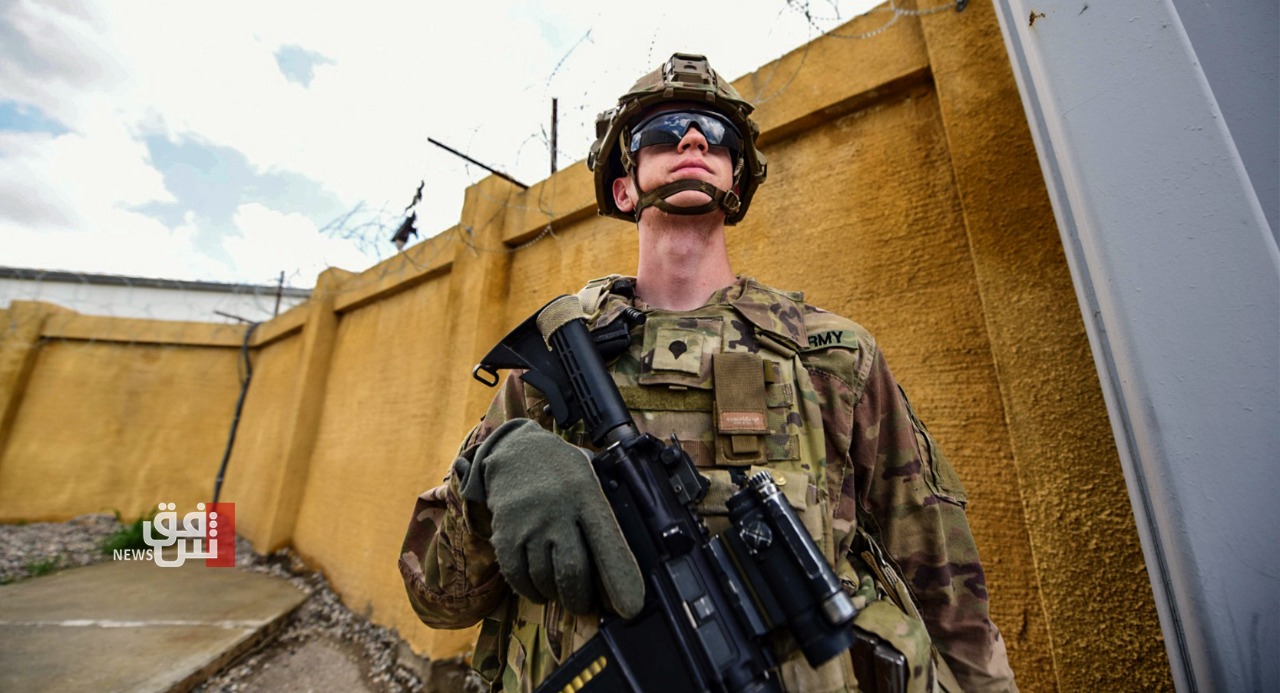
Shafaq News / The bilateral relationship between Iraq and the United States is multifaceted, reflecting a complex history marked by significant shifts and evolving dynamics. Since the 2003 US-led invasion that resulted in the removal of Saddam Hussein's regime, the relationship has traversed various phases characterized by both cooperation and challenges.
There has been a notable transition towards cooperation in recent years, particularly in critical areas such as security, counterterrorism, and economic development.
Collaboration in combating the ISIS threat stands out as a significant milestone, with the United States providing essential support to Iraqi security forces in their efforts to defeat the terrorist organization.
Economically, the US remains an influential partner for Iraq, with trade and investment playing pivotal roles in bilateral ties. Additionally, American assistance in infrastructure development, healthcare, and education highlights the depth of engagement between the two nations.
However, challenges persist, including issues related to Iraqi sovereignty, the presence of US military forces, and divergent foreign policy agendas. Domestic political dynamics in both countries further influence the trajectory of the relationship.
Notwithstanding occasional tensions and divergences, Iraq and the United States continue to engage in diplomatic dialogue and cooperation, aiming to address shared challenges while managing differences effectively. This nuanced approach reflects the complexity of their relationship and the ongoing efforts to foster mutual understanding and collaboration.
Observers maintain that the United States stands as Iraq's foremost strategic ally. Hence, there is a national interest in solidifying ties with the US. However, this necessitates clearly defined terms to avert ambiguity that might lead to deviations from stated positions.
Presently, the Iraqi-US relation appears relatively tranquil, with a decline in assaults on bases and camps housing US forces by insurgent factions.
Nevertheless, deliberations persist concerning the termination of the Global Coalition's mission aimed at combating ISIS. This was stressed by Prime Minister Mohammed Shia Al-Sudani during his recent press briefing, where he disclosed receiving communication from the US administration regarding the matter.
A series of assaults, notably the assassination of a prominent leader within Al-Nujaba Movement in Baghdad on January 5th, prompted Al-Sudani to characterize the Coalition as a destabilizing factor in the region.
Consequently, he announced the initiation of talks aimed at terminating its presence in Iraq.
Meanwhile, the US national radio NPR posited that the recent assassination of Kata'ib Hezbollah leader Abu Baqir Al-Saadi on February 7th holds broader implications for the future of American military involvement.
Speculation abounds that the Global Coalition may dissolve within a year, with the US potentially maintaining a symbolic military presence within Iraq.
WITHDRAWAL WITHIN A YEAR
The Iraqi government has repeatedly and explicitly declared its lack of need for foreign forces on Iraqi soil, as confirmed by the member of the Parliamentary Security and Defense Committee, Allawi Nima al-Bandawi. He said, "Hence, successive governments, following this agreement, have expressed the need for training forces during the previous period, which witnessed security threats and terrorism."
"However, thanks to the efforts of all Iraqi forces, including the Popular Mobilization Forces (PMF), the Peshmerga, the Interior Ministry, the Defense Ministry, and the Counterterrorism Apparatus, all Iraqi territories have been liberated from ISIS. Therefore, the government sought another way to reduce the size of foreign presence in Iraq."
He clarified, "The government is committed to resolving this issue and has formed a high-level technical security committee to study the withdrawal of the remaining foreign forces from Iraqi territory while maintaining diplomatic and economic relations. The Security and Defense Committee also met with the Commander-in-Chief of the Armed Forces and political forces to discuss this matter."
Moreover, according to Al-Bandawi, the Parliament supports the government's direction on this issue, having emphasized on multiple occasions the necessity to end the mission of the Coalition in Iraq, advocating for a multifaceted relation encompassing economic, political, and other aspects.
Addressing concerns about the possibility of mutual targeting until withdrawal, he noted, "The political forces and armed factions, most of which are part of the government, have announced halting their attacks and allowing the government to negotiate the termination of the Coalition's presence. The latter will be more disciplined until its expected withdrawal within a year, based on criteria, foremost among them being the improvement of the security situation in Iraq."
THE FUTURE OF THE RELATIONSHIP
On the other hand, retired Brig. Gen. Dr. Emad Alou, a researcher in strategic and military affairs, pointed out the distinction between US forces and the termination of the mission of the Global Coalition, which includes more than 60 countries. This Coalition was established at the request of the Iraqi government and authorized by the United Nations.
Alou explained to Shafaq News Agency, "As for scheduling the end of the Coalition's mission, this is the concern of committees that emerged from bilateral talks between Iraq and the US military technical delegation. These committees have not reached a clear result so far, and their outcomes have not been announced. The discussions are still ongoing, but three committees emerged from this bilateral meeting."
He continued, "On the other hand, both Iraq and the US are keen to ensure that the future of their relationship is built on cooperation and mutual respect, as outlined in the previous Strategic Framework Agreement. This includes areas such as industry, agriculture, scientific cooperation, cultural exchange, and visits."
Furthermore, he elaborated, "There is also a security aspect to this agreement, and its development or transition to a new phase is necessitated by the Strategic Framework Agreement, which has been in place for about ten years. Therefore, reviewing it to determine the positive direction of the relationship between Iraq and the US has become necessary. Both parties are keen on this."
THE IMPORTANCE OF THE GLOBAL COALITION'S PRESENCE
The presence of the Global Coalition yields political, economic, and security returns. Iraq is required to engage with international politics and the international security system in the region, where the Coalition forces are stationed, especially considering Iraq's strategic location in the region.
Iraq possesses resources and capabilities that could enable the Coalition forces to transition from a security relation to an economic and investment one, according to Dr. Mu'taz Al-Najim, an international relations professor.
Al-Najm emphasized to Shafaq News Agency, "Iraq needs such economic or political relations. The Global Coalition acknowledges that the US is the guarantor of the Iraqi economy, as Iraq's economic resources and oil revenues go to the Federal Reserve."
He noted that "the US is a superpower, and there is no better strategic partner for Iraq than the US. Therefore, it is in the national interest to solidify the relation with it, but to define its nature rather than have ambiguous and unclear relations, which would lead to behaviors differing from statements."
There was a clear indication of the strategic nature of the relationship when Al-Sudani mentioned at a recent Munich conference that there is a strong, long-standing relationship and a strategic partnership with the US.
Al-Najim asserted that "this should continue to ensure political gains, especially as the country is still internally fragmented and requires an official sponsor and real support at the regional and international levels to secure Iraq's interests and its leading position."
He added, "Therefore, the US is the best ally Iraq can rely on and benefit from by defining the nature of the relation and dealing with it. Although the Coalition forces are there for security reasons, the stronger the security, the more attractive the political and economic policies become. Conversely, as security weakens, so does the economy."
Furthermore, "security is the foundation of everything and peace cannot continue without it as security is the essential element for attracting politics, economics, stability, and the process of achieving sustainable development."
However, in recent times, there have been emerging issues, such as assassinations, which Dr. Al-Najim considered as dangerous indicators. He believed that "individual assassinations are more dangerous than missiles and drones because they are ambiguous and involve internal parties. This problem could escalate, especially considering the quality of the targeted individuals, who may be affiliated with factions with armed wings and political representation."
He pointed out that "these assassinations could be a dangerous start to undermining internal security and stability. They are messages to Al-Sudani, indicating the importance of dealing with these challenges that could return the country to internal conflicts and become the first stage of internal fighting, especially since some factions and tribes possess medium and heavy weapons."
Regarding the repercussions of the withdrawal of the Global Coalition, he explained that "the problem in Iraq lies in the absence of strong intelligence. Therefore, if Iraq can benefit from the Coalition's capabilities by activating the intelligence aspect to provide Iraqi security forces with information about those who carry out attacks and assassinations, given their complete control over the airspace, Iraq lacks strong intelligence efforts, air defense forces, or sensory devices for some crimes that may occur."
He asserted that "Baghdad needs to define the nature of its relation with Washington and be a partner to the Global Coalition forces, a genuine strategic partnership based on high Iraqi national interests. Al-Sudani realizes the importance of the Coalition's presence and the United States. Still, Iraqi practices in forming committees are to alleviate the pressure exerted on Al-Sudani by some entities, emphasizing the necessity of expelling the US and the Coalition from Iraq."
